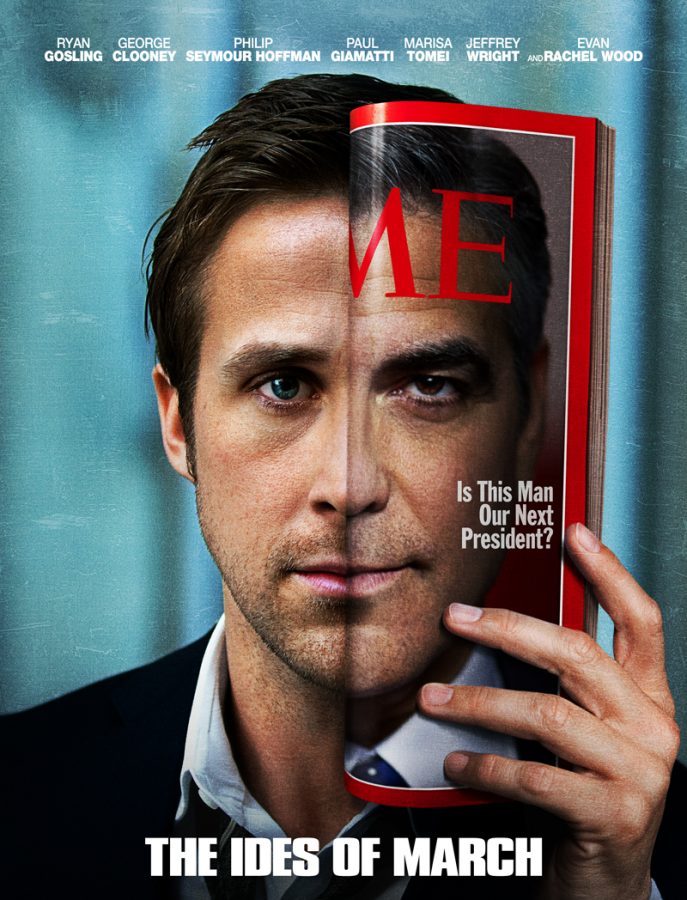Message deeper than politics in “The Ides of March”
“The Ides of March” is about an election campaign, but the themes run much deeper than politics.
October 13, 2011
Line up at the polls everyone, George Clooney is running for president. As cheerful as it sounds, “The Ides of March” plunges into the grit of a political game where, as the strategic campaign manager Stephen Myers (Ryan Gosling) says, if you “make a mistake, you lose the right to play.” Myers is a zealous 30 year old, who invests his life and loyalty, supposedly the only currency in politics you can trust, in democratic candidate Mike Morris (Clooney).
Artistic composition, directing by Clooney
With a romanticism that causes Myers to state he is married to the campaign and that his religion “is called the United States of America,” he soon discovers that he is one of the few politicians who authentically believe that integrity within the race is as important as maintaining the appearance of integrity without.
Directed and co-written by Clooney, it is no doubt that the film is an artistic beauty, capturing the nostalgic hometown feel of a campaign with speeches in local schools, pub meetings and trips to the barber shop.
As the film unfolds, scenes shift from backdrops of an American flag with the inky silhouette of Myers to the icy white streets of Ohio and close-ups of Myers’ empty stare. The music also twists in tune with Myers’ perception of politics, moving from all-American tunes like the lyrics of Frank Sinatra’s “Angel Eyes,” to pulsing violins.
Modern political references, deep themes
With campaign ads that look uncannily similar to President Obama’s “Hope” posters, references to improving education and technology and the vision to get America’s head out of the sands of Iraq, the film is woven with hot topics, but they’re usually encompassed in campaign speeches. One scene that stood curiously out of place was with a young girl from a high school Democrat Society arguing that gender distinction was the same as racial discrimination.
Morris brushed off the topic, leaving me wondering whether it was meant to promote homosexuality or make a cut at it. Despite taking place on a political stage, the modern issues are used as props to help the audience grasp the setting. The ides of March generally refers to March 15, the day that Julius Caesar was thought to have been betrayed and killed by his friends. There is a feeling of betrayal in this movie, and the poster displaying half of Morris’ face and half of Myers’ just might be a clever play on the word “ides” whose Latin roots mean “half division.”
Time and again, there are small details like these that give the film a dimension beyond mere politics. Deceit, blackmail, adultery, death and revenge flood the plot making the themes, not the images or language, what give the movie an R-rating. The ending will make or break the film for some, equaling the plot in its intensity and forcing viewers to think. Whether it is an authentic depiction of the world of politics, “The Ides of March” is worth watching for the mind-bending themes and ethical issues it tackles.







